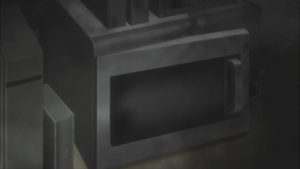 We’re two-thirds of the way through Steins;Gate 0 now, and it’s been an interesting if somewhat frustrating series to follow. It started off pretty great, then frankly hit a long patch which I would have to be feeling charitable to call “inconsistent” – a couple of really good episodes surrounded by a raft of indifferent ones. This week’s ep certainly represented the best one in many weeks, and maybe one of the best handful of the entire sequel. But is it a sign that the show has turned the corner, or is it an aberration?
We’re two-thirds of the way through Steins;Gate 0 now, and it’s been an interesting if somewhat frustrating series to follow. It started off pretty great, then frankly hit a long patch which I would have to be feeling charitable to call “inconsistent” – a couple of really good episodes surrounded by a raft of indifferent ones. This week’s ep certainly represented the best one in many weeks, and maybe one of the best handful of the entire sequel. But is it a sign that the show has turned the corner, or is it an aberration?
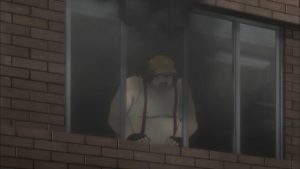 The divide with “0” seems pretty straightforward to me. The series works when it’s focused on the central plot, and sputters when it meanders down the garden path with side stories – something it’s done far too often. It begs the question – is there simply not enough core material to drive a two-cour series this time around? I haven’t played the VN but it wouldn’t necessarily be out of character for a VN adaptation to bite off more than it can chew and run into that problem. Maybe this show would have been better as one cour – but that’s something we’ll never know for sure.
The divide with “0” seems pretty straightforward to me. The series works when it’s focused on the central plot, and sputters when it meanders down the garden path with side stories – something it’s done far too often. It begs the question – is there simply not enough core material to drive a two-cour series this time around? I haven’t played the VN but it wouldn’t necessarily be out of character for a VN adaptation to bite off more than it can chew and run into that problem. Maybe this show would have been better as one cour – but that’s something we’ll never know for sure.
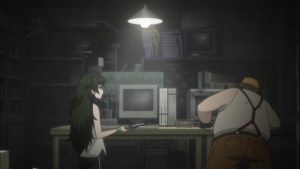 Fundamentally, Steins;Gate is about the terrible dilemma that pervades everything – the intertwined fates of Mayuri and Kurisu, and what living with that dilemma does to Okabe-san. The new characters have provided a nice freshening up of that central plot (they’ve been one of the strongest parts of Steins;Gate 0 in fact) but those new characters have almost exclusively been tied into the main storyline and not the branches. The best episodes, like this one, have been the ones that embrace the tragedy inherent in the premise unreservedly.
Fundamentally, Steins;Gate is about the terrible dilemma that pervades everything – the intertwined fates of Mayuri and Kurisu, and what living with that dilemma does to Okabe-san. The new characters have provided a nice freshening up of that central plot (they’ve been one of the strongest parts of Steins;Gate 0 in fact) but those new characters have almost exclusively been tied into the main storyline and not the branches. The best episodes, like this one, have been the ones that embrace the tragedy inherent in the premise unreservedly.
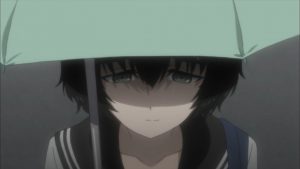 Mayuri’s role in all this is certainly integral, because there’s a tragic element to her relationship with Okabe above and beyond Steins;Gate. She knows she can never be for Okabe what he is for her – and the fact that the woman who was is now gone, and that their lives are in effect a zero-sum equation, makes it all the worse. Yet Mayuri has always supported Okarin unreservedly, to the point where she even suggests that if having sacrificed Kurisu to save her life makes him eternally sad, perhaps he should never have done it.
Mayuri’s role in all this is certainly integral, because there’s a tragic element to her relationship with Okabe above and beyond Steins;Gate. She knows she can never be for Okabe what he is for her – and the fact that the woman who was is now gone, and that their lives are in effect a zero-sum equation, makes it all the worse. Yet Mayuri has always supported Okarin unreservedly, to the point where she even suggests that if having sacrificed Kurisu to save her life makes him eternally sad, perhaps he should never have done it.
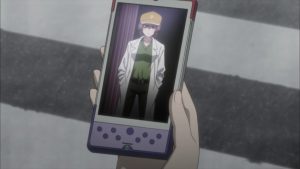 What we know (and deep-down Mayushi surely does too) is that Okabe could be no less unhappy if he sacrificed Mayuri to save Kurisu. He simply isn’t wired that way, and besides he does love Mayuri – just not in the same way she loves him. What a sad cycle of self-reproach this is – Okabe and Mayuri each living with regret over the choices he’s made. But in addition to that Okarin must also live with the terrible memories of all the times he tried to beat the universe, and failed. That’s why no matter how sad Mayuri’s situation is, I think Okabe’s is ultimately even worse.
What we know (and deep-down Mayushi surely does too) is that Okabe could be no less unhappy if he sacrificed Mayuri to save Kurisu. He simply isn’t wired that way, and besides he does love Mayuri – just not in the same way she loves him. What a sad cycle of self-reproach this is – Okabe and Mayuri each living with regret over the choices he’s made. But in addition to that Okarin must also live with the terrible memories of all the times he tried to beat the universe, and failed. That’s why no matter how sad Mayuri’s situation is, I think Okabe’s is ultimately even worse.
 That’s why I can’t really blame Okabe for his steadfast opposition to any research into the telephone microwave, or even his violent reaction upon finding out that Daru (at Suzuha’s behest) and Maho have been working on it behind his back. It’s easy for Daru to reproach him and Maho to lecture him, because they haven’t seen what he’s seen or lived (over and over) what he’s lived. Maho may claim she understands, but her frustration at constantly failing to measure up (no pun intended) to Kurisu is in no way an analog to what Okabe has suffered through. Maybe he’s right to be so opposed to what they’re doing and maybe he’s not, but it’s hard to imagine how anyone in his situation would feel any differently.
That’s why I can’t really blame Okabe for his steadfast opposition to any research into the telephone microwave, or even his violent reaction upon finding out that Daru (at Suzuha’s behest) and Maho have been working on it behind his back. It’s easy for Daru to reproach him and Maho to lecture him, because they haven’t seen what he’s seen or lived (over and over) what he’s lived. Maho may claim she understands, but her frustration at constantly failing to measure up (no pun intended) to Kurisu is in no way an analog to what Okabe has suffered through. Maybe he’s right to be so opposed to what they’re doing and maybe he’s not, but it’s hard to imagine how anyone in his situation would feel any differently.
 With Suzuha’s time machine only having one year’s worth of fuel in it and the anniversary of Kurisu’s death coming up, Okabe is almost out of time for self-doubt – if he has any reservations about his staunch position on time travel, it’s time to shit or get off the pot. Whatever you think the right answer is, unless Okabe relents Steins;Gate 0 really never gets out of neutral in its final third, so I think we all know where this is eventually headed. As long as it gets their fairly expeditiously and without too many detours up narrative blind alleys, I think the series still has a chance to end how it began – on a very strong note.
With Suzuha’s time machine only having one year’s worth of fuel in it and the anniversary of Kurisu’s death coming up, Okabe is almost out of time for self-doubt – if he has any reservations about his staunch position on time travel, it’s time to shit or get off the pot. Whatever you think the right answer is, unless Okabe relents Steins;Gate 0 really never gets out of neutral in its final third, so I think we all know where this is eventually headed. As long as it gets their fairly expeditiously and without too many detours up narrative blind alleys, I think the series still has a chance to end how it began – on a very strong note.


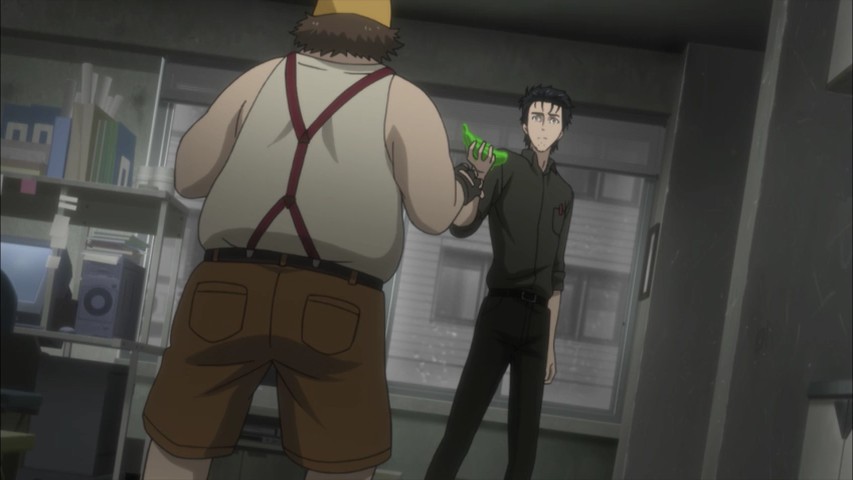
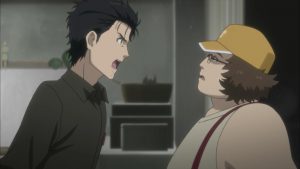


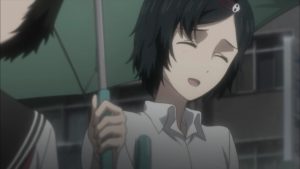
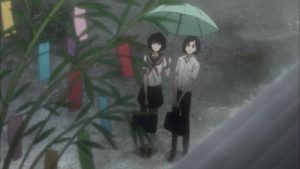

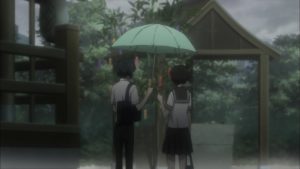
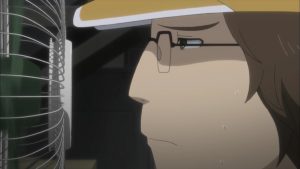
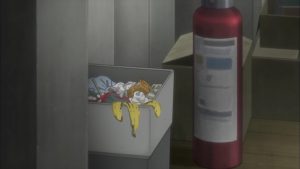
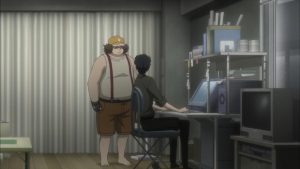

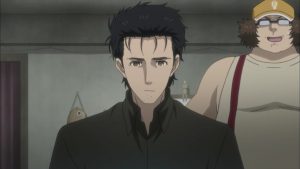
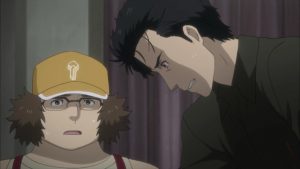
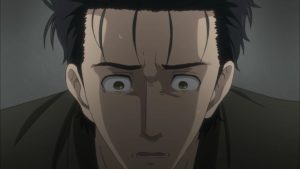
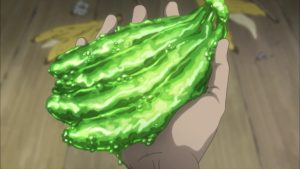
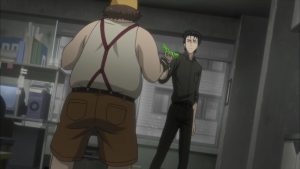
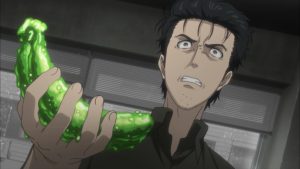






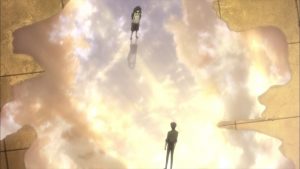
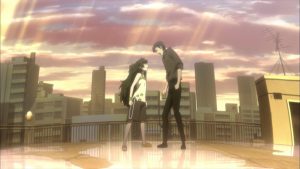
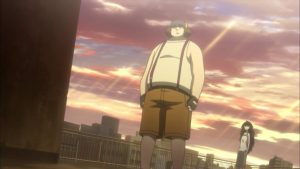
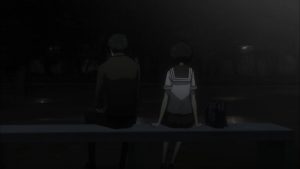

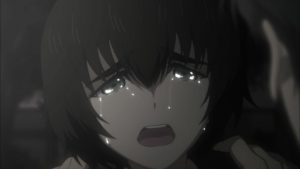


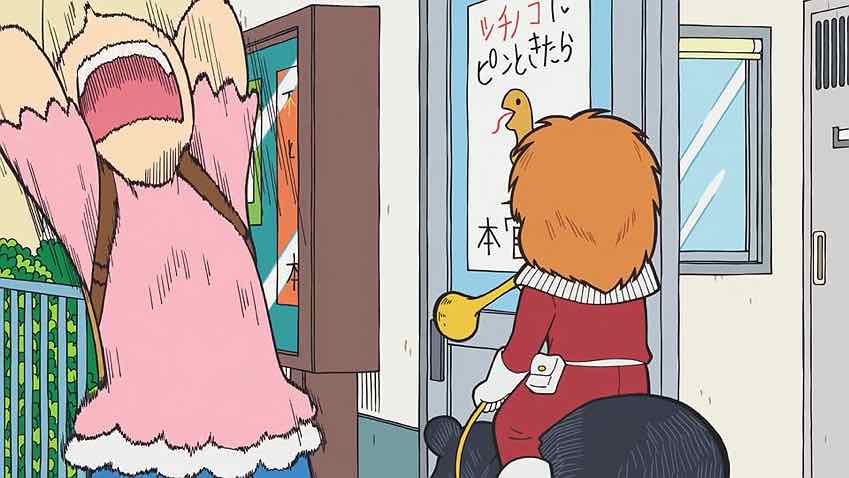
Stefan
August 2, 2018 at 4:21 pmNow that is more like it. A game route is obviously not a narrative. The tapestry of the side-stories of a story, when branching out, is fine and delicate; this puts me in the mindset of Otoyomegatari and HxH. The first S;G game had many mechanisms to make its side stories converge into a whole; the sequel appears to diverge because it’s less constrained by the necessities of the central narrative, so the branches just split from the river at the point of resistance, taking on a life of their own (even though the peripheral material is too weak to allow this structure to thrive).
Stefan
August 2, 2018 at 4:22 pmAt the point of least resistance. Also, meant a game route isn’t an anime narrative .